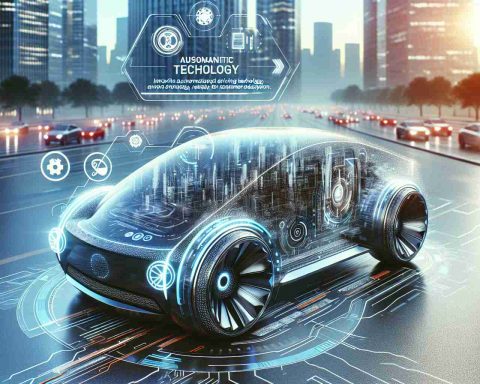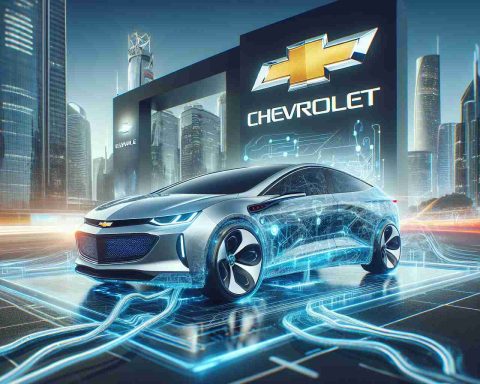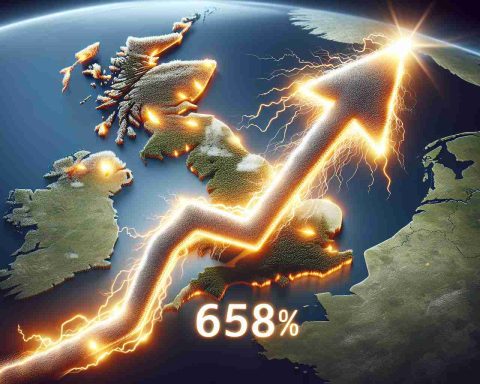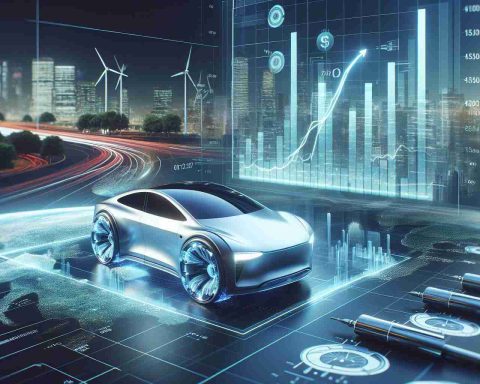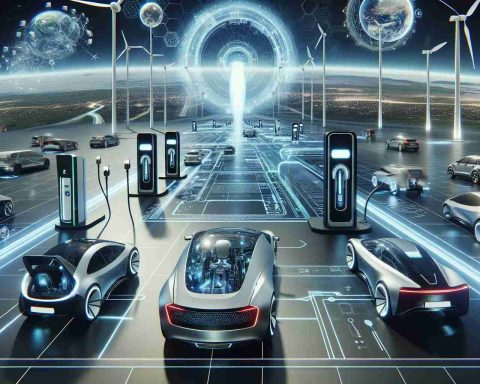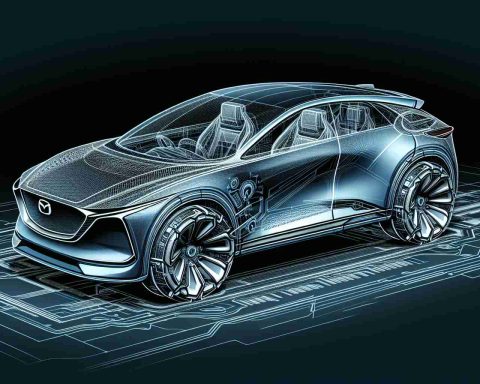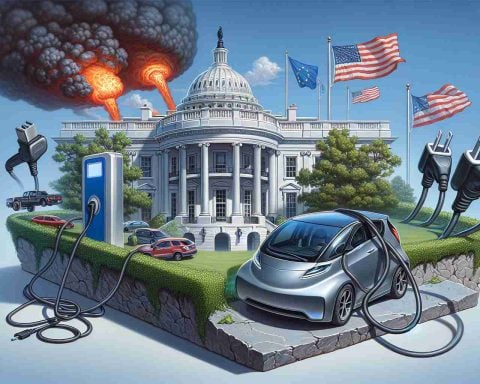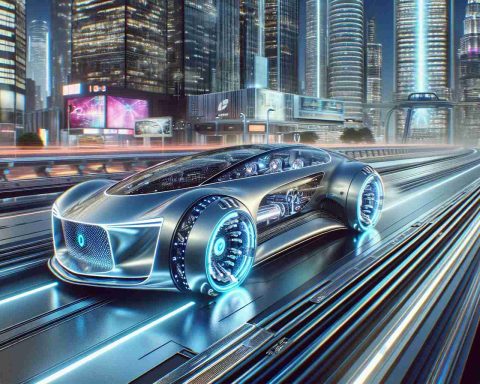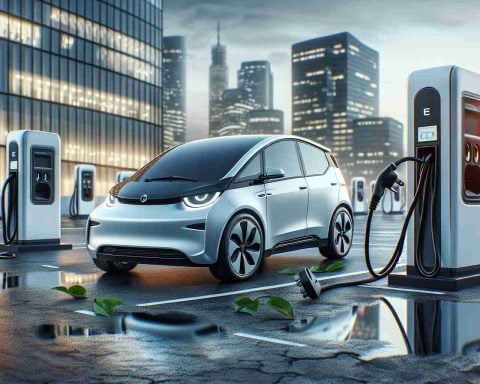- The Trump administration has suspended a $5 billion initiative for EV charging stations, impacting the electric vehicle landscape significantly.
- The National Electric Vehicle Infrastructure (NEVI) program is halted, affecting states’ ability to expand charging infrastructure.
- Many Republican-led states can pause their charging initiatives without penalties, leading to potential delays in deployment.
- The decision may contribute to consumer “charging anxiety,” hindering the transition to electric vehicles.
- Tesla has already received funding under NEVI but now faces uncertainty regarding its future expansion.
- The potential elimination of the $7,500 tax credit for electric vehicles further complicates the market’s outlook and consumer adoption.
The Trump administration has thrown a wrench in the gears of the electric vehicle (EV) future by suspending a staggering $5 billion initiative aimed at installing EV charging stations nationwide. This bold move targets the National Electric Vehicle Infrastructure (NEVI) program, which was poised to transform America’s electric landscape and propel companies like Tesla into new heights.
Within a recent memo, the Federal Highway Administration (FHWA) announced an immediate halt on the approval of plans for new EV chargers, largely reshaping priorities in favor of gas-powered vehicles. States with Republican leadership can now pause their plans without penalty, leaving many potential charging stations in limbo.
This decision sends shockwaves to the EV market, especially affecting Tesla, which has already received $31 million of NEVI funding to establish 539 DC fast-charging ports. With the specter of cutting the $7,500 tax credit for new electric vehicles looming large, many consumers may find themselves grappling with “charging anxiety”—a major barrier to switching to EVs.
As the dust settles on this pivotal shift, all eyes will be on how the electric vehicle market adapts to this challenge. Will private investment fill the void left by the federal government? The future of Tesla—and the broader electric vehicle landscape—hangs in the balance as the industry grapples with these new realities.
Key Takeaway: The suspension of EV charging funding marks a significant setback for electric vehicles in the U.S., raising questions about the future of sustainable transportation away from gas dependence.
Shocking Shift: The EV Charging Setback That Could Change Everything!
Major Setback in the EV Landscape
The recent suspension of the $5 billion National Electric Vehicle Infrastructure (NEVI) program by the Trump administration has introduced uncertainty into the electric vehicle (EV) market. This decision not only halts the installation of crucial charging stations but also raises significant questions about the future of electric vehicles in the U.S., especially for companies like Tesla, who are heavily reliant on this infrastructure.
Market Forecasts and Trends
With the FHWA’s memo detailing a temporary hold on new EV charger approvals, many states—particularly those with Republican leadership—are pausing their expansion plans. The implications of this pause may lead to a significant slowdown in EV adoption, which was once on an upward trajectory.
Experts predict that this could lead to:
– Increased Investment from the Private Sector: As federal initiatives stall, companies may seek to invest more aggressively in their own charging infrastructure.
– Shift in Consumer Sentiment: Charging anxiety could deter potential buyers. The reduction or elimination of the $7,500 tax credit may further contribute to this hesitance.
Pros and Cons of the Suspension
Pros:
– Short-term financial savings for the government, which could redirect funds elsewhere.
– Potential for private market innovation as companies may step in to fill the gap.
Cons:
– Delays in infrastructure development, which are critical for widespread EV adoption.
– Long-term impact on climate goals as reliance on gas-powered vehicles may continue to be prioritized.
Key Questions Regarding the Future of EV Charging Infrastructure
1. What alternatives to federal funding exist for EV charging station expansion?
– Alternative funding could come from private sectors, such as partnerships with major automotive companies, financial institutions, or state-level initiatives aimed at sustainability.
2. How will consumers react to the lack of charging infrastructure?
– If charging anxiety becomes pervasive, it could lead to a decrease in EV sales and emissions goals being missed, causing some consumers to opt for traditional vehicles instead.
3. What is the outlook for EV manufacturers like Tesla amidst these changes?
– Tesla may need to pivot its strategies to emphasize its own charging solutions while lobbying for supportive policies that can help mitigate the effects of reduced federal funding.
Sustainability and Innovations
The suspension raises pressing concerns about sustainability efforts in the U.S. By shifting focus back to gas-powered vehicles, the government may inadvertently hinder progress towards cleaner transportation. Innovative partnerships and new technologies will be essential for the evolution of EV charging solutions.
Future Predictions
Market analysts suggest that if the private sector can successfully deliver innovative and accessible charging solutions, the impact of this federal policy change might be less severe than anticipated. However, sustained investment and consumer confidence will be key determinants of whether the U.S. can maintain its pace in electric vehicle adoption.
For in-depth insights on the impact of government policies on EVs, check out AutoTrader.


